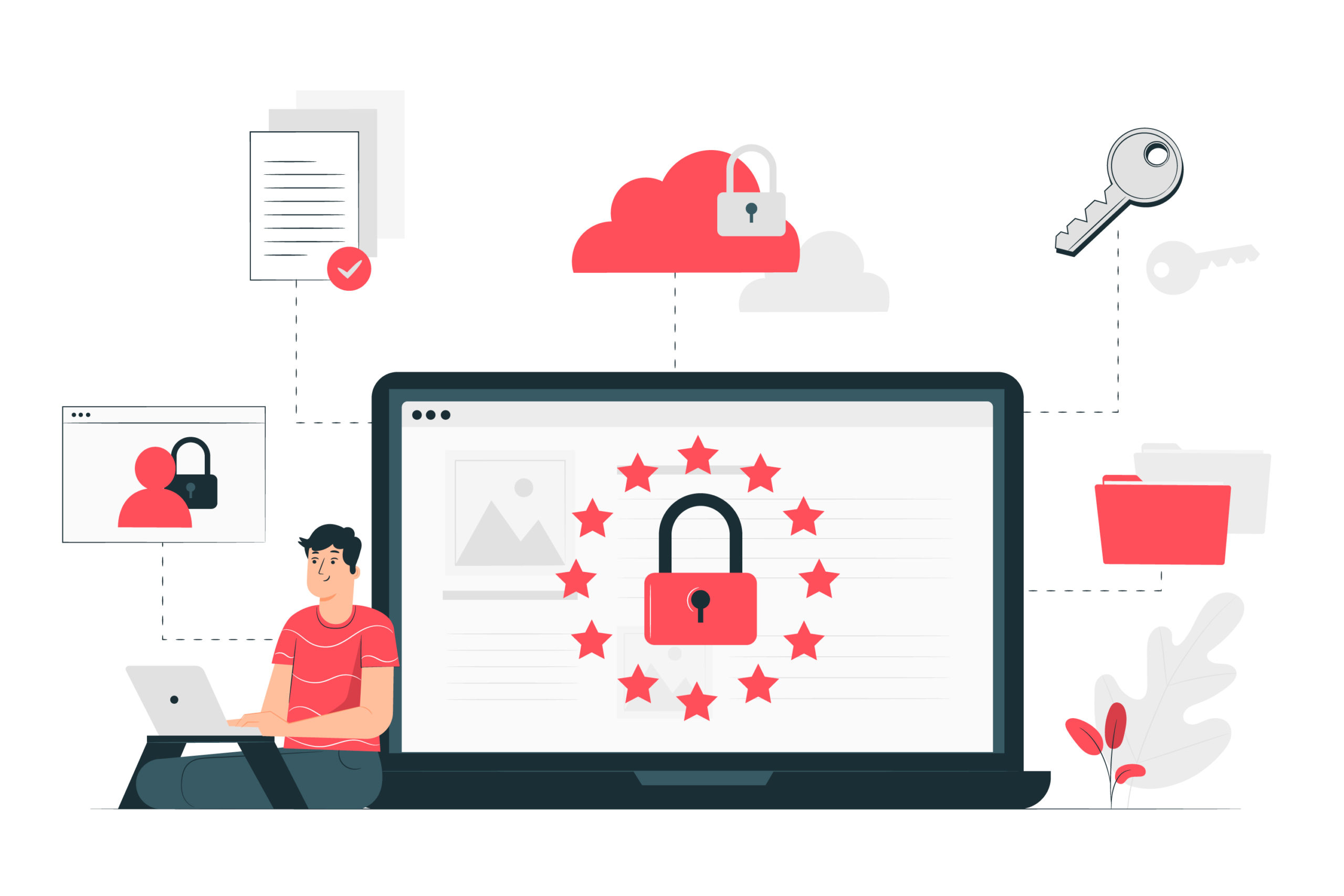Social Media Impersonation : A Comprehensive Guide (2024)

Social media impersonation poses a real and present danger in the digital age, affecting individuals and businesses alike. It undermines trust, damages reputations, and can lead to significant emotional and financial harm. However, with the right knowledge and tools at our disposal, we can significantly mitigate the risks associated with impersonation. By staying informed about the tactics used by impersonators, implementing strong security measures, and acting swiftly when impersonation is detected, users can protect their online identities.
Table of Contents
Table of Contents
Introduction
In our digitally-driven world, social media platforms serve as the cornerstone of our personal and professional lives. They are the windows through which we share our experiences, connect with others, and build our personal or business brands. However, this digital landscape is not without its pitfalls, with social media impersonation emerging as a significant threat. Social media impersonation involves unauthorized individuals creating fake accounts under another person’s name or brand, often with malicious intent. These acts can range from harmless pranks to severe cases of identity theft, aiming to deceive, defraud, or damage the reputation of the impersonated individuals.
What is Social Media Impersonation?
Understanding social media impersonation is crucial in today’s interconnected world. It’s not just about protecting our online identity but also about safeguarding the trust and relationships we’ve built over the years. This article aims to shed light on the mechanics of impersonation on social media, its impacts, and the steps individuals and businesses can take to protect themselves against such online perils.
How Impersonation Happens on Social Media
Below we have mentioned a few points of how impersonation happens on social media.
Phishing Scams
One of the most common methods through which impersonators gain access to personal accounts is through phishing scams. These scams involve sending fraudulent messages designed to trick individuals into revealing sensitive information, such as passwords and banking details. Once the impersonator has this information, they can easily create fake accounts or take over existing ones.
Account Hacking
Direct hacking of social media accounts is another prevalent method. Hackers use various techniques, including malware, spyware, or brute force attacks, to breach accounts. Once inside, they can impersonate the original account owner, posting unauthorized content or sending messages to the victim’s contacts.
Fake Profile Creation
The simplest form of social media impersonation involves creating a new account using another person’s name, photos, and personal information. Impersonators often comb through public profiles to gather enough details to make these fake accounts seem believable. They might use these profiles to scam the friends and followers of the person they’re impersonating or to discredit the person’s reputation through inappropriate posts.
Understanding these methods is the first step in guarding against social media impersonation. By staying informed about the risks and the ways imposters operate, social media users can adopt more cautious online behaviors and protect their digital identities.
The Impacts of Social Media Impersonation

We have mentioned the impacts of social media impersonation below
Personal Reputational Damage
The first and most immediate impact of social media impersonation is the potential damage to an individual’s reputation. Impersonators can post harmful or misleading content that reflects negatively on the victim, affecting their personal and professional relationships. For public figures and businesses, this can translate into a loss of trust and credibility among their audience.
Financial Fraud
Impersonators often use fake accounts to commit financial fraud. By adopting the identity of a trusted individual, they can manipulate victims into transferring money, sharing credit card information, or divulging confidential financial information. The consequences can range from minor losses to significant financial ruin, depending on the scale of the fraud.
Emotional and Psychological Effects
Victims of social media impersonation may experience a range of emotional and psychological effects, including stress, anxiety, and a sense of violation. Knowing that someone is misusing your identity can lead to feelings of helplessness and vulnerability, impacting mental health and well-being.
Identifying Social Media Impersonation
There are multiple ways to identify social media impersonation. Below we have included few
Signs of Impersonation
Recognizing the signs of social media impersonation is key to stopping it in its tracks. Some indicators include:
- Unexpected Account Activity: Posts, messages, or friend requests that you did not initiate.
- Multiple Accounts: Discovering one or more accounts bearing your name and likeness that you did not create.
- Reports from Friends: Receiving reports from friends or contacts about suspicious behavior attributed to you.
Verifying Account Authenticity
To verify the authenticity of a social media account, consider the following steps:

- Check for Verification Badges: Many social media platforms provide verification badges to the accounts of public figures and brands to confirm their authenticity.
- Examine the Account’s History: Authentic accounts typically have a longer history of posts and interactions. A sudden burst of activity from a previously dormant account can be a red flag.
- Contact the User Directly: If possible, reach out to the person or organization the account claims to represent through other means to confirm its legitimacy.
Legal Framework and Social Media Policies
Social media impersonation not only affects individuals on a personal level but also poses legal implications. The approach to tackling this issue varies by country, but most jurisdictions have laws against identity theft and fraud, which can be applied to severe cases of impersonation online.
1. Global Legal Perspectives
In many countries, the act of impersonating someone online with the intent to deceive or cause harm is considered a criminal offense. Victims may have recourse through legal action to seek damages or to force the removal of the impersonating accounts. However, the legal process can be lengthy and may require substantial evidence to prove harm or malicious intent.
2. Social Media Platforms’ Policies
Social media platforms have implemented their policies against impersonation, recognizing the need to protect their users from such activities. These policies allow users to report suspected impersonation, and platforms often require a form of identification to verify the authenticity of the report. Once an account is flagged as impersonating, it is reviewed by the platform’s moderation team and can be removed if it violates the platform’s terms of service.
3. Preventing Social Media Impersonation
While completely preventing impersonation may be challenging, there are several proactive measures you can take to reduce the risk and protect your online identity.
1. Strong Passwords and Two-Factor Authentication
The first line of defense against account hacking is to use strong, unique passwords for each of your social media accounts and to enable two-factor authentication (2FA) wherever possible. This adds an extra layer of security, making it more difficult for impersonators to gain unauthorized access to your accounts.
2. Regular Monitoring of Your Online Presence
Staying vigilant about your online presence is key to early detection of impersonation. Regularly search for your name on social media platforms and the internet to check for any accounts or content that you did not create. Tools like Google Alerts can automate this process by notifying you when your name appears online.
3. Educating Yourself and Others
Awareness is a powerful tool in the fight against social media impersonation. Educate yourself about the latest scams and threats, and share this knowledge with friends, family, and colleagues. The more people are aware of the risks and the signs of impersonation, the harder it becomes for impersonators to succeed.
By understanding the legal implications and adopting preventive measures, individuals and organizations can significantly mitigate the risks associated with social media impersonation. Ensuring the authenticity and security of online identities not only protects against immediate threats but also preserves the integrity and trustworthiness of digital interactions in the long run.
Responding to Social Media Impersonation
When faced with social media impersonation, acting swiftly and decisively can mitigate potential damage. Here are the steps you should take to address and resolve the situation:
Immediate Steps to Take
- Report the Impersonation: Most social media platforms have a process for reporting impersonation. Provide all necessary documentation and information to help the platform quickly address the issue.
- Inform Your Network: Alert friends, family, and colleagues about the impersonation, so they are aware of the situation and do not engage with the fake account.
- Document Everything: Keep records of the impersonation, including screenshots and details of the impersonating account, as well as any communication with the social media platform and authorities. This documentation can be crucial for legal proceedings or getting the account taken down.
Reporting to Authorities and Social Media Platforms
- Contact Local Law Enforcement: In cases of severe impersonation, involving threats, harassment, or financial fraud, contacting local law enforcement can be necessary.
- Follow Up with Social Media Platforms: After reporting the impersonation, keep in communication with the social media platform to track the progress of your report and to provide any additional information requested.
Seeking Legal Advice
For serious cases of impersonation that have legal implications or result in financial loss, consulting with a legal professional can provide guidance on the best course of action and whether pursuing legal action is a viable option.
Future of Social Media Security
As social media continues to evolve, so do the security measures implemented by platforms to protect users from impersonation and other threats. Here’s what we can expect in the future of social media security:
Advances in AI and Machine Learning
Artificial intelligence (AI) and machine learning technologies are becoming increasingly sophisticated in detecting fake accounts and impersonation attempts. These technologies can analyze patterns of behavior that are indicative of fraudulent activity, leading to quicker identification and removal of impersonating accounts.
Enhanced Verification Processes
Social media platforms are likely to implement more rigorous verification processes for account creation and recovery. This may include requiring additional forms of identification, biometric data, or other verification methods that make it more difficult for impersonators to create fake accounts.
9. Conclusion
In conclusion, social media impersonation requires a multifaceted approach that includes prevention, detection, and response strategies. By fostering a culture of cybersecurity awareness and adopting best practices, challenge. We can navigate the challenges of impersonation and enjoy the benefits of social media with confidence and security.
You can also read – Top 10 Best Phishing Tools for Advanced Protection (2024)
FAQs
How can I differentiate between a real and impersonated social media account?
Look for verification badges, check the account’s history for consistency in content and interactions, and be wary of accounts with very recent creation dates claiming to be well-known figures or brands.
Are there specific tools to help detect social media impersonation?
Yes, there are online tools and services designed to monitor the web for instances of your name or brand being used, helping to quickly identify potential impersonation.
How important is it to educate others about social media impersonation?
Education is crucial. By raising awareness about the signs of impersonation and how to respond, you can help create a more informed online community that is harder for impersonators to deceive.






